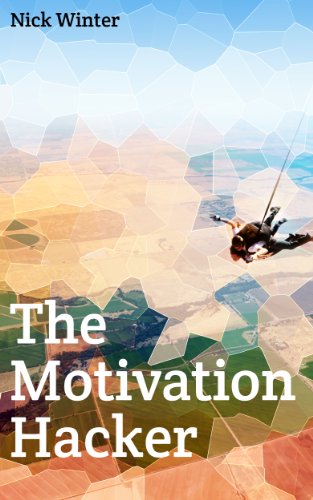
The Motivation Hacker
von Tim Winter
I write about ways to find your own path, but I’m a 26-year-old American guy who works for himself, has neither debt nor pets nor children, runs barefoot, and doesn’t know two things about what’s going on in the news today. My perspective may be different enough that I forget things. You may still need shoes to walk your own path.
Hack like this: first pick your goals, then figure out which motivation hacks to use on the subtasks that lead to those goals—and then use far more of them than you need, so that you not only succeed, but that you do so with excitement, with joy, with extra verve and a hunger for the next goal.
Perhaps they’re just happier doing the things they did anyway, or perhaps ambition is a necessary catalyst for excitement.
But I used to have no ambitions, and as I slowly fixed myself, they appeared.
By increasing Expectancy or Value, or decreasing Impulsiveness or Delay, you hack motivation.
The biggest hack a motivation hacker can perform is to build her confidence to the size of a volcano. An oversized eruption of Expectancy can incinerate all obstacles in the path to any goal when you combine it with good planning.
At any time, there’s only one clear thing that you want to do, so you have no problems focusing on it.
It takes superhuman effort to focus on a task when you’re surrounded by distractions. But when you remove distractions in advance, no such effort is required: concentration flows. The motivation hacker learns to anticipate and eliminate distractions and temptations, making it trivial to follow through with her plans.
The motivation hacker learns to structure goals so that the perceived Delay is not so great. Intermediate milestones, process-based goals, and willfully optimistic planning are his tools here. With the right mindset, success is ever right around the corner.
The tip which worked for me was to focus on input-based process goals (write for five minutes) rather than output-based results goals (write one page), and to keep the required inputs minuscule at first.
Precommitment, also known as using a commitment device[37], is a versatile set of tools for increasing motivation in almost any situation. To precommit is to choose now to limit your options later, preventing yourself from making the wrong choice in the face of temptation. Publicly announcing your goal is a common form of precommitment.
Or you can easily resist the temptation of a short-term reward by removing it as an option in advance, like not keeping any junk food in your house.
Startup maven Paul Graham has an excellent essay about the acceleration of addictiveness[46] in which he argues that to live a good life, one must become ever more eccentric in terms of saying no to the explosion of things that are designed to addict us, many of which are now delivered via the internet.
Paul Graham once wrote that doing a startup is “a way to compress your whole working life into a few years.”[73] Working on your own startup can provide more motivation than anything else I know. You do those forty years of work in four years because you have to, but also because it’s fun.
Apple cofounder Steve Jobs said that you should stay hungry[80] in order to do great things. If your life is full, you won’t have the same drive as a desperate man. This doesn’t matter for many goals, but watch out if you’re trying to compete with those hungry desperados—they want it more than you do, so you’ll have to be extra smart about structuring your motivation in order to work as hard as they will.
Entrepreneurs, management gurus, and scientists all like to quote other entrepreneurs, management gurus, and scientists saying things like “You make what you measure[98],” “What gets measured, gets managed[99],” and “If you cannot measure it, you cannot improve it[100].”
Once you have the success spiral of Richard Feynman or Tim Ferriss or Michael Jordan, you can skip the Beeminder and Just Do It. Until then, realize that everyone you see shining with competence and productivity either built great habits over a long period of time or has a mess of dirty dishes and buried insecurities hidden behind the rippling abs.
Find Flow. Tasks which are too easy or too hard are not engaging, so find ways to make tasks challenging but possible. I think of this in terms of being a task samurai and doing dwarf dishes. Make a game of it. Compete against yourself, or against others. • Find Meaning. Look for ways to connect tasks with major life goals, so that you can remind yourself why you’re doing what you’re doing.
Productive Procrastination. If you can’t bring yourself to do your main task, at least get some other things out of the way. It’s not perfect, but perfect is the enemy of good.
Create Rewards. When you succeed, celebrate it, either by congratulating yourself or giving yourself a treat.
Focus on Passion. Know what you’re passionate about, and steer your life towards those passions.
Precommitment. Choose now to limit your later options, preventing yourself from making the wrong choice in the face of temptation.
Goal Reminders. Make external reminders of your goals visible, and actually look at them. Avoid failing at your goals just because you forgot about them.
Build Useful Habits. Make an autopilot schedule for yourself and put your goals into it, or add goals to existing routines.
Break Goals Down. Granularize big goals until the next achievement is right in front of you. Subgoals and sub-subgoals defeat Delay. This is what Beeminder does automatically: you get a target for each day.